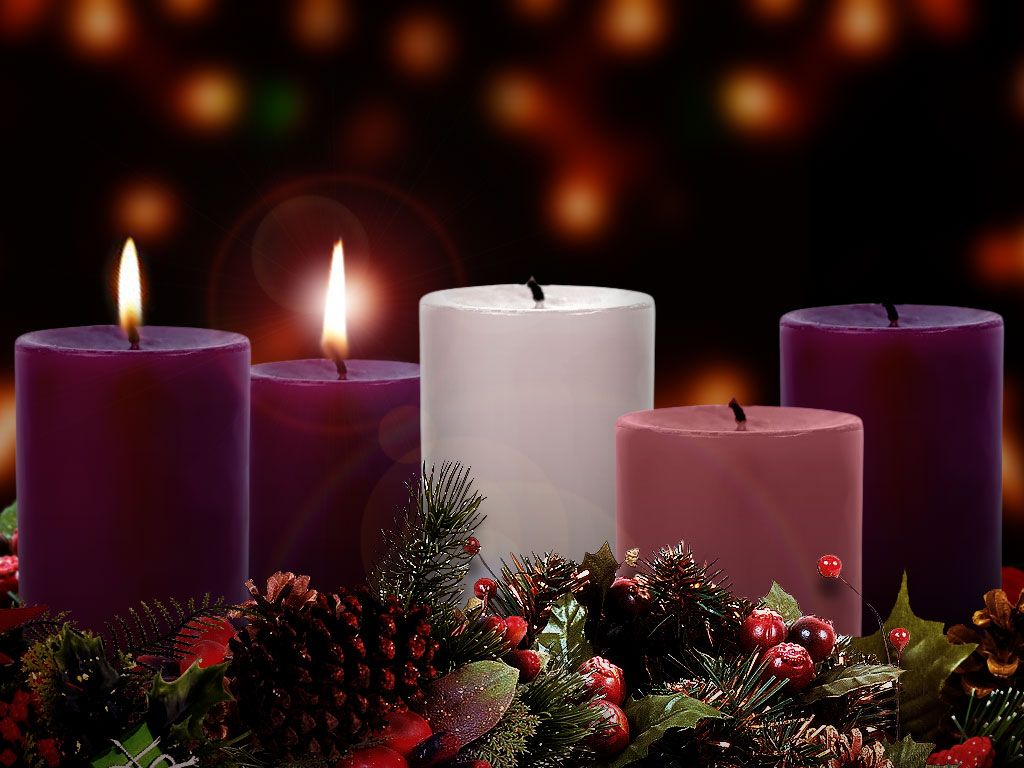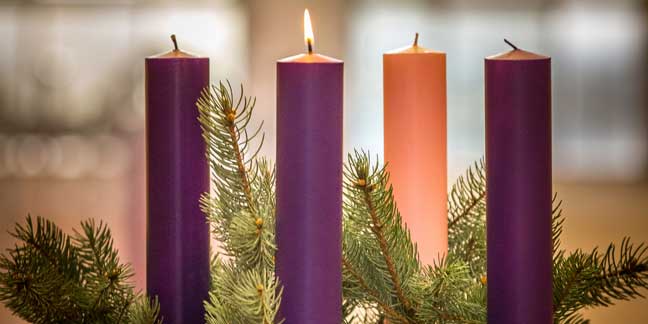This evening we celebrate when something truly miraculous came to pass on a Holy Night: God was born. The newborn Jesus ushers in a new dawn, a dawn of hope for a humanity that was lost in the night of sin and in need of a Savior.
Like Isaiah in this evening’s First Reading, we can’t be silent in the light of what we’re celebrating: our Messiah is born. The vindication Isaiah describes dawns with the birth of Our Lord. With the daybreak of Our Lord a new age begins, the age of our redemption and restored union with God. Vindication means to set free, to avenge, or to free from allegation or blame, to defend. The Lord has freed us from our sins. He has avenged us for all the evil we’ve had to suffer. In becoming one of us he has freed us from blame and shown favor toward us. With his birth we will be defended from sin forever. This vindication is a restoration of the dignity of Israel after it had gained a bad name. For her infidelity she was Forsaken, and everyone knew it. She was despoiled of her true wealth—the Lord—and became Desolate as a result. The Lord shows his favor toward us, his People, with a love as deep and solid as that of newlyweds. The union between the Lord and humanity will never diminish. He has become flesh, one with us in his humanity, and bridged the gap between the divine and the human worked by sin. Like the love of newlyweds, that love should only grow deeper. His holy humanity has the power to make our humanity holy too and is destined to grow.
In this evening’s Second Reading Paul describes all the key players in salvation history that would lead to the Messiah born to us today. The God of Israel, none other, chose to reveal himself and walk with the patriarchs, then freed their descendants from Egypt and established a people as his people. When the king they clamored for failed them (Saul) the Lord raised up David as their king, a king who’d always be faithful to him. King David’s descendant, Jesus, would be faithful to the Father forever and save us forever. John’s conception and birth, as the prophets foretold in the Old Testament, also heralded the arrival of the Messiah. This evening we celebrate that the Messiah is Jesus of Nazareth, born in Bethlehem.
In this evening’s Gospel recalls the lineage of Our Lord to reveal something even more miraculous than the birth of the Messiah: the birth of the Son of God. He is descended from David, something he gets from Joseph, but he wouldn’t be in the human family tree at all if not for Mary welcoming him into her womb, enabling him to assume human nature. There are saints and sinners in his family tree, but he shows his solidarity with them all by taking up a place in the human family. The Gospel also presents Joseph trying to face the dilemma of the Incarnation. Joseph was betrothed to Mary, but he knew he was not Our Lord’s biological father. Something in his heart did not want to condemn Mary for an apparent wrong, but the facts that he knew, and the Law, were clear.
It took a revelation and faith to accept the miracle that was about to be born, and Joseph had a strong faith. Every birth is a miracle, but the birth we’re celebrating this evening takes the miraculous to an entirely different level. We’re happy to celebrate the birth of Our Savior, just as anyone in need of saving would be. Illustrious historical figures who’d go on to save their people are many. This evening we rejoice that God the Son is born. God has assumed human nature and come among us, full of grace and truth. Some historians may balk at that, but we believe with joy what the Lord has revealed to us: God is born as Our Savior.
Christmas Eve gives us an opportunity to help the light of Christ dawn more brightly on Christmas Day. Christmas Day is still relatively sacred in terms of a civil holiday, but someone is always working, and not always because they want overtime. Sometimes they drew the short straw or are far from family and friends. Why not bring that gas station attendant, homeless shelter volunteer, emergency responder, nurse on shift, police officer, etc., a plate of Christmas cheer, or a simple thank you for working so that others can be safe and rest?
Readings: Isaiah 62:1–5; Psalm 89:4–5, 16–17, 27, 29; Acts 13:16–17, 22–25; Matthew 1:1–25. See also Christmas, Mass During the Day (2), and Christmas, Mass During the Day.





